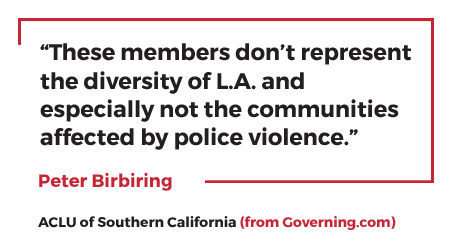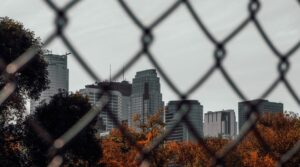What are Police Oversight Boards?
Police oversight boards, also known as civilian oversight boards, have been implemented to improve community trust in police. But law enforcement officers and union officials are appropriately skeptical of untrained, under-resourced oversight boards.
Oversight boards date back to the early 1900s. They were initially created to try to eliminate undue political pressure on police, but it failed.
In the 1960s, inspired by challenges of the Civil Rights Era, oversight boards had more longevity. Since then, there has been an expansion of oversight boards from less than 40 in the 1980s to over 100 oversight boards across the US by 2000.
OVERSIGHT BOARDS SUPERVISING POLICE DEPARTMENTS

WHO SERVES ON POLICE OVERSIGHT BOARDS?
What makes someone qualified to serve on an oversight board?
Qualifications vary by city

Some have past law enforcement or criminal justice experience

Others have some connection to law enforcement but no direct experience.

Many have no previous connection to law enforcement
ARE OVERSIGHT BOARDS FAIR AND FREE OF BIAS?
- Many jurisdictions allow the mayor or other elected officials to select board members. This means that board members likely lack the independence needed to arbitrate discipline in an impartial manner.
- Because Los Angeles’s police oversight board is comprised of attorneys and mediators, officers with higher ranks get more favorable disciplinary decisions over lower-ranking officers.
- New York City’s police oversight board has long been criticized for inconsistent discipline. Department commanders rejected 90 percent of the board’s disciplinary findings in 2012.
COMMON OVERSIGHT BOARDS SHORTFALLS




CITIES WITH POLICE OVERSIGHT BOARDS


RELATED POLICE OVERSIGHT BOARD ARTICLES

Legislative Alert: Tennessee Police Review Committees Overhauled
In July, the Tennessee State Legislature passed two controversial pieces of legislation to overhaul the

Tennessee to Abolish Police Oversight Boards in Major Cities
In recent years, police brutality and misconduct have become hot-button issues across the United States.

Minneapolis Police Oversight Commission: Record Number of Applicants
The city of Minneapolis has been grappling with issues of police accountability and reform since

Drama at the Rochester Police Accountability Board
Last month, drama broke out in Rochester when members of its Police Accountability Board (PAB)

Review Board Showdown in Jacksonville, FL
Jacksonville, Florida is yet another American city where activists are attempting to gain influence over

Two Competing Police Review Board Visions (Akron, OH)
Akron, Ohio is yet another American city to bring a proposal for a civilian police
